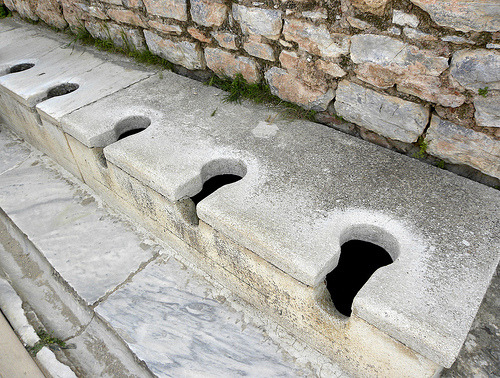


Ancient Roman Public Toilets,
A simple row of toilets. Waste was carried away by constantly flowing water, which would then flow into a nearby river or ocean. One of the most important feats of civilization is to be able to dispose of one’s poo without causing disease, and the Romans were experts in plumbing and public sanitation.
Since the Ancient Romans did not have toilet paper, one would clean his or her posterior with a sponge on a stick, usually soaked in brine. The moat of running water in front of the toilets was for cleaning the sponge stick after use. A trough with water and sometimes scented oils was used for handwashing.
The Ancient Romans were not big on privacy. In fact the potty time was also a time to socialize and catch up on gossip.





Комментариев нет:
Отправить комментарий